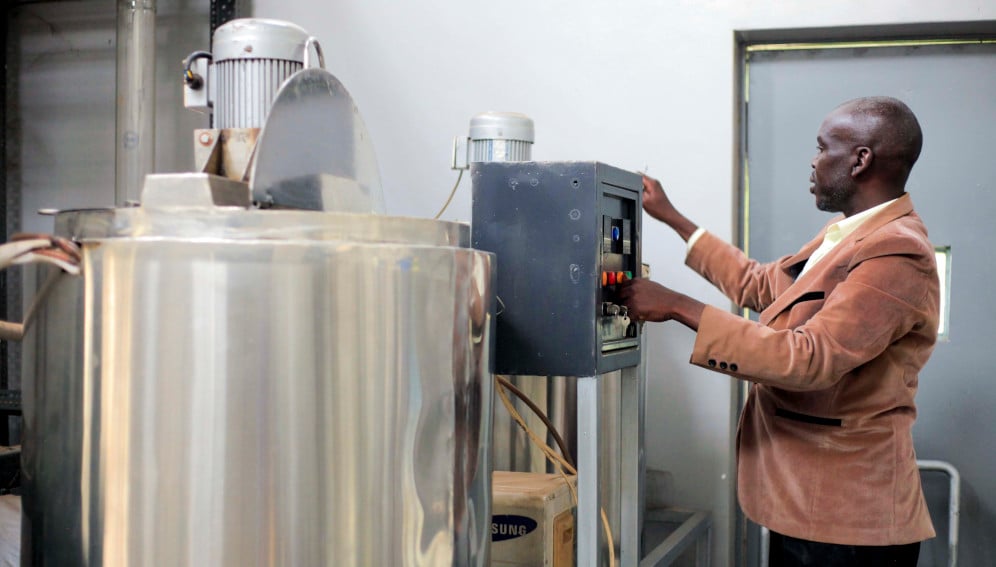

Bones are the foundation of your body, giving you structure and protecting your organs. But as we age, our bones can become weaker, leading to conditions like osteoporosis, which increases the risk of fractures.
The good news is there are natural ways to improve bone density and keep your bones strong and healthy throughout life.
Bone density refers to how strong and dense your bones are. Bones are living tissues that constantly rebuild themselves, but this process slows down as you age. By the time you reach your 30s, you’ve usually built up as much bone as you’ll ever have, known as peak bone mass.
After that, your body naturally starts losing bone faster than it can replace it. This is why taking care of your bones early on is so important, but it’s never too late to start.
One of the best natural ways to strengthen your bones is through weight-bearing exercises. Activities like walking, jogging, dancing, and weightlifting put stress on your bones, which signals your body to produce more bone tissue.
A review of studies in the Journal of Bone and Mineral Research found that people who engaged in regular weight-bearing exercise had higher bone density compared to those who were less active. Even simple activities like climbing stairs or gardening can make a difference over time.
Your diet also plays a crucial role in bone health. Calcium is one of the most well-known nutrients for building strong bones, and for a good reason. About 99% of the calcium in your body is stored in your bones.
Foods like dairy products, leafy greens, almonds, and fortified plant-based milk are excellent sources of calcium.
However, calcium doesn’t work alone—it needs vitamin D to help your body absorb it. Spending time in the sun is a natural way to get vitamin D, but you can also find it in foods like fatty fish, egg yolks, and fortified cereals.
Magnesium and vitamin K are other nutrients that support bone health. Magnesium, found in nuts, seeds, and whole grains, helps your bones use calcium effectively.
Vitamin K, which you can get from green vegetables like spinach and kale, plays a role in forming bone proteins and maintaining bone strength. A study published in Nutrition Journal showed that people with higher magnesium and vitamin K intake had a lower risk of bone fractures.
Protein is another key player in bone health. While it’s often overlooked, protein helps build the collagen framework that gives bones their strength and flexibility.
Research shows that people with adequate protein intake tend to have higher bone density. Good sources include eggs, fish, beans, and lean meats.
It’s also important to avoid things that can weaken your bones. Smoking and excessive alcohol consumption are known to harm bone health. Smoking reduces the blood flow to your bones and slows down the production of new bone tissue.
Alcohol, when consumed in large amounts, interferes with your body’s ability to absorb calcium and vitamin D. Cutting back on these habits can make a significant difference.
Another natural way to support your bones is through maintaining a healthy weight.
Being underweight increases your risk of bone loss, while being overweight can put extra pressure on your bones, leading to problems like joint pain. Striking a balance with a healthy diet and regular exercise is key.
In summary, improving bone density naturally is all about a combination of regular exercise, a nutrient-rich diet, and avoiding habits that harm your bones.
By making small, consistent changes to your lifestyle—like adding more leafy greens to your meals, going for a walk, or spending a little time in the sun—you can give your bones the care they need to stay strong and healthy for years to come.
Taking action today is an investment in your health that your future self will thank you for.
If you care about muscle, please read studies about factors that can cause muscle weakness in older people, and scientists find a way to reverse high blood sugar and muscle loss.
For more health information, please see recent studies about an easy, cheap way to maintain muscles, and results showing these vegetables essential for your muscle strength.
Copyright © 2024 Knowridge Science Report. All rights reserved.








Leave a Comment